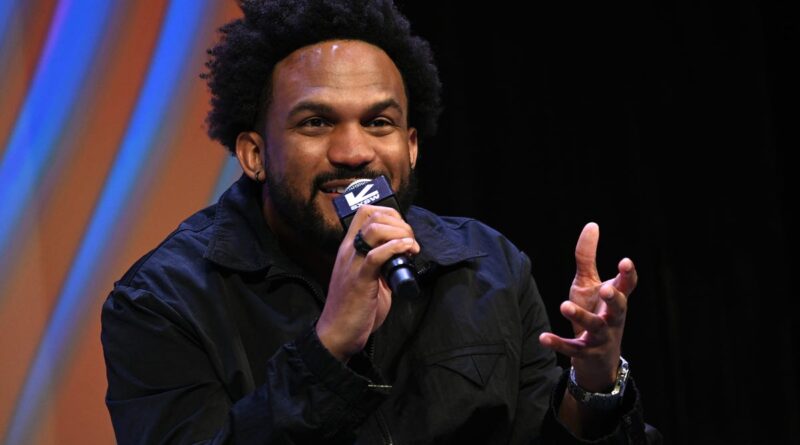kickstarter’s First Black CEO Shares His Unconventional Path to Success
Since 2009, Kickstarter has been on a mission to help people bring their creative projects to life. The crowdfunding site has helped launch successful video games, films, books and more.
And since he took over as the company’s first Black CEO in September 2022, Everette Taylor has made it his business to ensure the company prioritizes people over profit with unionized workers and a four-day work week. Under Taylor’s leadership, Kickstarter was named one of Time100’s Most Influential Companies of 2023.
In a new interview for LinkedIn’s The Path, Taylor sat down with LinkedIn CEO Ryan Roslansky, and shared how empathy and risk-taking has helped propel him along an unconventional path to success.
Always a Dreamer
Taylor said his earliest career aspirations included everything from basketball player to rapper but were less about his talents and more about finding a path out of his native Richmond, Virginia.
“A lot of people where I’m from stay in this small neighborhood,” he said. “I was always a dreamer. And so a lot of the things that I wanted to do were things that I felt [were] going to get me out of Richmond, Virginia, even if they weren’t realistic,” he said.
When Taylor’s mother learned one of his first jobs was selling drugs, she found him a position as a junior marketing assistant, promoting bookstores and gift shops for Civil War parks and Black history museums across Virginia. The job kept a 14-year-old Taylor out of trouble and gave him his first experience in marketing. But in his senior year of high school, Taylor found himself homeless, a setback he says ultimately saved his life and gave him his greatest skill.
“It was one of the worst moments anyone can go through in their lives. But I think it really molded me into the person I am today,” Taylor said. “I think my strength as a leader is empathy, and there’s no better lesson of empathy than not having anything.”
As a homeless teen, Taylor hid out in his local library, where he had access to a computer for the first time. The internet exposed him to the stories of people like Mark Zuckerberg, who were only a few years older than him but were heading up successful companies. And once he discovered tech, Taylor knew it was where he needed to be.
Big Risks, Even Bigger Rewards
After high school, Taylor did everything from washing windows to playing drums on buckets to hustle the money he needed for college. He enrolled at Virginia Tech and worked to help pay for his classes.
Once there, he took his first shot at entrepreneurship and launched a company that used social media to promote parties and sell pictures – something that was both revolutionary and risky in 2008. But that risk would be the first of many. Taylor ultimately sold his company, left school and moved to Silicon Valley.
“I think it was survival. I’m working, I’m making minimum wage. It was this feeling of, like, it could be taken all away. That’s how we ended up being homeless in the first place. For me, entrepreneurship provided me this kind of safety net,” he said.
Taylor found his place in Silicon Valley. He moved around to various startups and even started a couple of his own, getting experience in PR, email marketing, SEO, and more in the process.
He eventually landed at Artsy, the largest online marketplace for buying and selling fine art. There, he noticed a lack of diversity and knew he needed to make a change. As CMO, working closely with the CEO, he absorbed the skills to run a large, consumer-facing organization and turned things around until 70 percent of Artsy’s most successful artists were people of color.
Be More Than Your Work
The business community got wind of what Taylor was doing at Artsy and people started talking. But rather than sticking around for the top spot at Artsy, he decided to apply for the CEO position at Kickstarter. Without a college degree or CEO experience, Taylor knew it was a risk. But it was one he was willing to take.
When asked to share his best career advice, Taylor recommends people not let their work define them.
“I spent so much of my career missing birthdays, missing time with family. I’ve learned that sacrificing all those things and not being great mentally, emotionally, and physically actually hurts you in your performance. Man, life is so short. You can be here one day and gone tomorrow. It’s so important to be more than your work,” he said.

